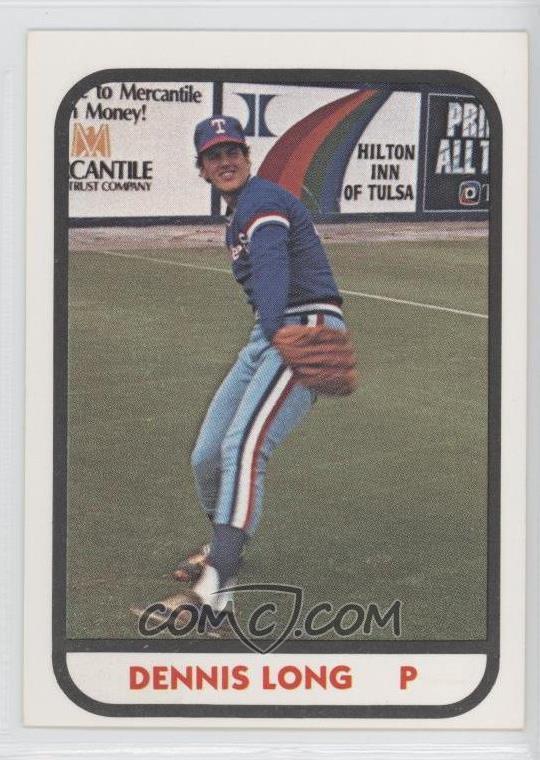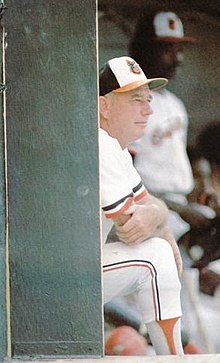If you stay around baseball long enough you will receive the gift of wisdom from some wise baseball people. Here are some thoughts from people who have crossed my baseball life and a short story behind each...
"The best pitchers have the best imagination."
This was something passed down to me years ago when I was a teenager. Not very technical to be sure but, interestingly, it came from a gentleman by the name of Bob Kelly, a former major leaguer from the 1940's and 1950's who lived in my hometown of Niantic, CT. Mr. Kelly showed me how he threw his slider (a pitch that was revolutionary in the 50's - Ted Williams said it was the hardest pitch for him to hit) and I ran with it for the duration of my baseball days. I will always be grateful for his teaching and the way he showed his love for the great game of baseball. That line stayed with me for years and still is something I like to pass along to kids (and parents) who are consumed with the radar gun. It is essential to use your brain out there, especially at the more elite levels where everyone is more hungry for the big prize of college scholarships or pro contracts. Learn how to pitch if you want to become a great pitcher.
"You don't have enough deception."
 I heard this statement from my AA manager, Tom Burgess, a life long baseball guy who passed away a few years ago. Tommy was a revered baseball manager in his native Canada, having played as a backup to Stan Musial with the St. Louis Cardinals of the 40's and 50's. I loved playing for him because he reminded me of my UConn head coach, the legendary Larry Panciera, the most no-nonsense competitor I ever played for. I had success playing for Coach P and for Tommy. Their words were short and to the point but they had plenty of impact on my career. Pitchers were shagging balls during batting practice in Little Rock, AR. The usual routine during a minor league season. On this particularly steamy Arkansas night we had our usual visit from Tommy as he liked to check on his pitchers. I had been pitching well and he knew it, which made this comment about not having enough deception in my delivery so impactful. Tommy Burgess was beautiful because under all of his gruff "old school" demeanor he genuinely wanted all of his guys to make it to the major leagues. I'm sure he was relaying the concerns of the front office along with his own experience as a hitter in an attempt for me to add something to my game. Taking his words to heart I worked hard with teammates and pitching coaches to create some deception. I dropped down a little more often to handle tough righty batters, added more changeups in my game for lefties, and started using more front side arm as a distraction. A promotion to AAA came a month later - coincidence? Probably not.
I heard this statement from my AA manager, Tom Burgess, a life long baseball guy who passed away a few years ago. Tommy was a revered baseball manager in his native Canada, having played as a backup to Stan Musial with the St. Louis Cardinals of the 40's and 50's. I loved playing for him because he reminded me of my UConn head coach, the legendary Larry Panciera, the most no-nonsense competitor I ever played for. I had success playing for Coach P and for Tommy. Their words were short and to the point but they had plenty of impact on my career. Pitchers were shagging balls during batting practice in Little Rock, AR. The usual routine during a minor league season. On this particularly steamy Arkansas night we had our usual visit from Tommy as he liked to check on his pitchers. I had been pitching well and he knew it, which made this comment about not having enough deception in my delivery so impactful. Tommy Burgess was beautiful because under all of his gruff "old school" demeanor he genuinely wanted all of his guys to make it to the major leagues. I'm sure he was relaying the concerns of the front office along with his own experience as a hitter in an attempt for me to add something to my game. Taking his words to heart I worked hard with teammates and pitching coaches to create some deception. I dropped down a little more often to handle tough righty batters, added more changeups in my game for lefties, and started using more front side arm as a distraction. A promotion to AAA came a month later - coincidence? Probably not.
"Dennis, I hope you are teaching your kids how to throw a change up because I've got pro guys throwing 95 and getting ripped."
This is a classic from Scott Budner, a friend and long time professional pitching coach and minor league coordinator for many teams over 30 years. Currently Scott is with the Miami Marlins organization. He visited the area a few years ago and watched a young high school pitcher workout. It is always great to hear the viewpoint of pro guys who are close to the current trends in training and pitching in particular and if they are able to pass along some knowledge to young local kids it makes for an effective message. He did not disappoint on this day. We talked about his young pitchers in the Seattle Mariners organization, where he was working at the time. Scott went on, like a pitching coach can, about how so many young fireballing pitchers were performing with the "deer in the headlights" look. So many 90 plus fastball pitchers but all were struggling getting to the next level because they could not command a secondary pitch, most notably a simple straight change up. The lesson for that day rang loud and clear to the young boy, his father, and me. My only regret that I didn't video record that workout!
"I let the hitters tell me how hard a guy is throwing!"
This is an old school statement for sure but it is worth sharing this comment from some forty years ago. The man who made the statement was Paul Richards, a guru in the way of managing, scouting , and player development. He is known for being one of the founders of the "small ball" approach - pitching, bunting, and good defense - to winning baseball back in the 1950's. When I was in the Texas Rangers organization he was a consultant and his word was gospel. I overheard him saying this in front of a group of minor league managers and coaches during a spring training workout and just remember thinking how important it is to actually watch a player rather than a stop watch or radar gun when trying to evaluate talent on both sides of the ball. I recall thinking, "If Paul Richards doesn't need a radar gun to evaluate pitchers there must be something to it." When people start asking about how hard a kid is throwing I always return to that moment and remember what Paul Richards said. Some coaches say they like the way a player "competes" or that they like their "make up". When I hear that I feel like those scouts are thinking along the same lines even though the radar gun and stop watch are in hand. After all, we are in the 21st century. But baseball absolutes still hold true over the years and solely deferring to the radar gun to evaluate talent can be a double edged sword.
 "There are two types of pitchers, the Merry-Go-Round and the Ferris Wheel."
"There are two types of pitchers, the Merry-Go-Round and the Ferris Wheel."
 This is another line from a spring training moment many years ago. The speaker was George Bamburger, the legendary pitching coach of the great Baltimore Orioles teams of the late 1960's and early 70's. He was the pitching coach of the last starting rotation to have four 20 game winners, the 1971 Baltimore Orioles of Jim Palmer, Dave McNally, Mike Cuellar, and Pat Dobson. Times have changed and the chances of this ever happening again are very slim but to oversee the success of a pitching staff like this required a special type of guy. "Bamby" was also the first guy I ever heard who said pitchers should play catch every day to improve arm health and consistency in their command. If you look at four 20 game winners you have to think that they were all both healthy and consistent for that season. The idea of "merry-go-rounds and ferris wheels" refer to pitching styles. Using two legendary pitchers as one example we have Jim Palmer who had a tall over the top "ferris wheel" delivery. If you don't remember take a look at any video online. Current pitchers with that delivery might be Cole Hamels, the lefty from the Rangers formerly with the Phillies and maybe the great Clayton Kershaw. Both stay tall and let leverage help themselves. Jim Palmer's contemporary in those years was the great Tom Seaver of the Mets. Some say he was a "drop and drive" type of power guy. In George Bamberger's terminology he was a "merry-go-round" style of pitcher. If you look at the motion you notice a more low to the ground delivery with Seaver. Some current pitchers like this would be Craig Kimbrel, the great closer of the Red Sox and formerly Braves. Also, Masahiro Tanaka of the Yankees would fit that style. Both stay low to the ground when they deliver their pitches. The lesson here for coaches, parents, and players is to be sure we are not trying to make someone a low to the ground type pitcher when they may be better suited to stay taller on the mound. There are many pitching styles and each person should embrace what they can do the best and find things they could use to help themselves increase their success.
This is another line from a spring training moment many years ago. The speaker was George Bamburger, the legendary pitching coach of the great Baltimore Orioles teams of the late 1960's and early 70's. He was the pitching coach of the last starting rotation to have four 20 game winners, the 1971 Baltimore Orioles of Jim Palmer, Dave McNally, Mike Cuellar, and Pat Dobson. Times have changed and the chances of this ever happening again are very slim but to oversee the success of a pitching staff like this required a special type of guy. "Bamby" was also the first guy I ever heard who said pitchers should play catch every day to improve arm health and consistency in their command. If you look at four 20 game winners you have to think that they were all both healthy and consistent for that season. The idea of "merry-go-rounds and ferris wheels" refer to pitching styles. Using two legendary pitchers as one example we have Jim Palmer who had a tall over the top "ferris wheel" delivery. If you don't remember take a look at any video online. Current pitchers with that delivery might be Cole Hamels, the lefty from the Rangers formerly with the Phillies and maybe the great Clayton Kershaw. Both stay tall and let leverage help themselves. Jim Palmer's contemporary in those years was the great Tom Seaver of the Mets. Some say he was a "drop and drive" type of power guy. In George Bamberger's terminology he was a "merry-go-round" style of pitcher. If you look at the motion you notice a more low to the ground delivery with Seaver. Some current pitchers like this would be Craig Kimbrel, the great closer of the Red Sox and formerly Braves. Also, Masahiro Tanaka of the Yankees would fit that style. Both stay low to the ground when they deliver their pitches. The lesson here for coaches, parents, and players is to be sure we are not trying to make someone a low to the ground type pitcher when they may be better suited to stay taller on the mound. There are many pitching styles and each person should embrace what they can do the best and find things they could use to help themselves increase their success.
"Pitching is an inexact science."
That's my line. It's not original but it is worth remembering for anyone associated with developing young pitchers. Be patient and good things will happen.

1 comment
Why choose us?
• Direct factory pricing with no middlemen
• Fast turnaround times without compromising quality
• All services under one roof for seamless production
• Strict quality control at every stage
• Global shipping and logistics support
We also offer sample creation, allowing you to visualize your designs before moving into full production.
I Would love To prepare for a custom Quote accrding your requirement.
Best Regards
Muhammad Amjad
Anro Sports
www.anrosports.com